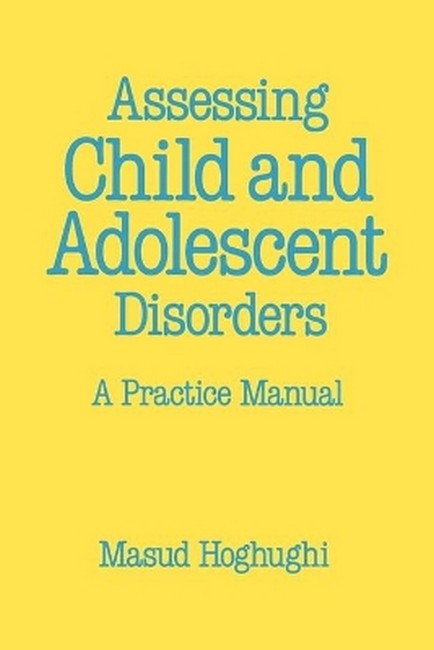Masud Hoghughi is Director of Aycliffe Centre for Children, County Durham and Honorary Professor of Psychology, University of Hull. He is the author of Troubled and Troublesome (1978) and The Delinquent (1983) and co-author of Assessing Problem Children (1980) and Treating Problem Children (1988).
Request Academic Copy
Please copy the ISBN for submitting review copy form
Description
PART ONE What is Assessment? Assessment in Context Approaches to Assessment The Problem Profile Approach Special Considerations in Assessing Children Information for Assessment Organisation of Assessment PART TWO The Master Code Physical Problems Intellectual and Educational Problems Home and Family Problems Social Skills Problems Anti-social Behaviour Psychological Problems Appendices Child and Adolescent Problem Profile (CAPP); Full Assessment Report
`Masud Hoghughi's book will be invaluable for professionals in all fields who work with troubled adolescents, and it would not surprise me if it became the basis for national standards' - Times Education Supplement `The first half of this book gives a thoughtful overview of the rationale for assessment and a helpful discussion on some of the underlying theoretical and practical issues... The second half of the book, a practice manual, allows use by a range of professionals and could be of benefit in residential homes where there has been so much concern about the level of staff training and the quality of care' - British Journal of Psychiatry `Hoghughi appears to have mastered the art of discussing areas of theoretical intricacy in a clear and concise manner. His uncluttered style and avoidance of gratuitous jargon facilitates the assimilation of his analysis. His evaluation of what to date have been the main assessment/diagnostic models (certainly in psychiatry) is comprehensive and he presents a balanced view of their respective strengths and weaknesses... Hoghughi's assessment of choice appears to be extremely broad-based and, therefore, is of clinical relevance to a wide range of professionals. Its holistic view emphasises the value of the child as a person in his/her own right and someone who is to be engaged in the assessment process rather than be a passive recipient of someone else's explanation for why they are experiencing difficulties. The model appears to have the seeds of good practice sown within it and will appeal, I am sure, to nurses, social workers, probation officers, teachers, psychologists and psychiatrists; indeed all those who job it is to work with troubled children and adolescents' - Journal of Adolescence `Covers a large range of issues and is written in a clear, simple and accessible language... This is a very ambitious project... it will certainly prove a worthwhile addition to the libraries of clinical psychologists and other professionals working in the area of child and adolescent mental health' - Behaviour Research and Therapy `(provides) clear, cohesive guidance with discussion of various conditions in terms of prevalence and sex ratios, onset and course, key predisposing factors and impairment consequences' - SciTech Book News

